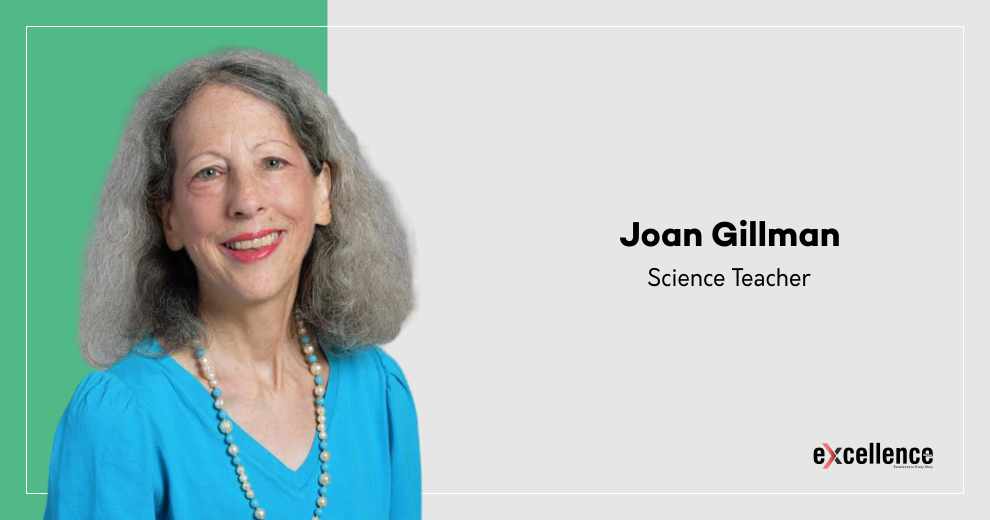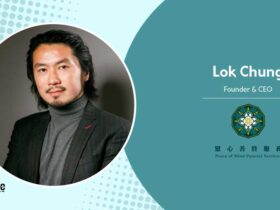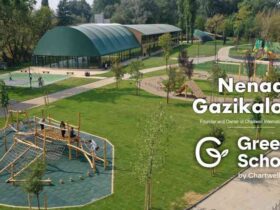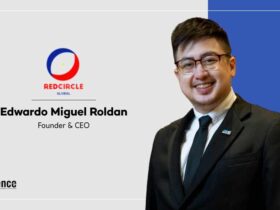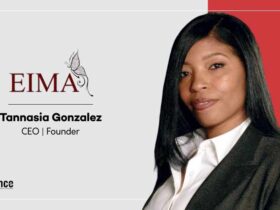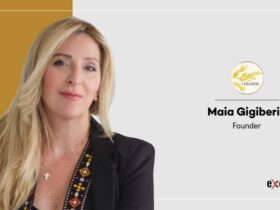From playground games to national conferences, Joan Gillman’s 43-year career as a science educator has been defined by passion, perseverance, and purpose. At The Browning School in New York City, she inspires generations of young learners to not only understand the world around them but to improve it. Her journey is one of mentorship, innovation, and a fierce dedication to equity and environmental stewardship—an educator whose classroom reaches far beyond four walls.
Discovering the Joy of Teaching Through Service
Joan’s journey toward becoming a teacher began during her high school years, sparked by a strong community service program required for graduation. She chose to volunteer in the lower school, where she taught elementary children how to play the recorder, tutored small groups in math, and led playground games. Her ability to include every child—regardless of their athletic skill—in playground activities was especially noted and praised by the head of the school.
At the same time, the passionate educator extended her efforts beyond the school environment. Joan taught swimming at the local JCC, including lessons for children with special needs, and served as a substitute ballet teacher at a neighborhood dance studio. Helping children overcome their fear of water and witnessing their growing confidence brought her immense satisfaction. She also cherished the joy of introducing young students to movement and rhythm through dance.
These early teaching experiences deeply shaped Joan’s philosophy of education. The committed educator embraced the importance of inclusiveness, believing every child should have a chance to shine. For her, it’s not about grooming world-class performers but about helping children learn to work and play with one another in harmony. She emphasizes the values of compassion, dignity, and respect—insisting that true success lies in supporting peers, celebrating milestones like a child hitting a baseball for the first time, or watching someone finally accomplish a task they have worked hard on.
Defining Moments: Tragedy, Ingenuity, and Adaptation
While pursuing her Master’s Degree in Education, Joan worked as a student teacher at P.S. 47 Junior High School for the Deaf, teaching science to profoundly deaf students in grades 7 to 9. The cooperating teacher she worked with valued hands-on learning, which helped Joan witnessed how experiential activities helped students grasp complex science concepts. During an engineering unit, the students built miniature amusement park rides that demonstrated real scientific principles. That experience left a lasting impact on the passionate educator and shaped her teaching approach.
In 1986, Joan faced a difficult moment while teaching sixth grade—breaking the news of the space shuttle Challenger disaster. Her students had eagerly awaited the launch, especially with a teacher aboard. Joan handled the moment with care, explaining the event in a way her students could understand. It was then she realized how deeply a teacher can influence and support students beyond academics.
During the COVID-19 pandemic, Joan transitioned to online teaching with creativity. She informed parents and students in advance about at-home science labs, sharing simple supply lists. Her kitchen became her classroom, and students followed along virtually. Parents were impressed by how interactive and engaging the lessons remained. With extra preparation and dedication, Joan continued to deliver meaningful learning experiences, even from a distance.
Guiding with Purpose: Leadership Across Grades and Green Initiatives
At The Browning School, Joan currently teaches science to second, fourth, and sixth grade students. In the upcoming fall, the passionate educator will shift from advising sixth graders to seventh graders, allowing her to continue supporting some of the same students. She values her advisory role deeply and is committed to helping students transition smoothly, offering guidance and a listening ear when challenges arise.
Dedicated to broadening students’ understanding of science, Joan has been closely involved in aligning the school’s curriculum with the Next Generation Science Standards (NGSS). Even during the summer, she works to refine her lesson plans to ensure they meet these evolving standards.
Addressing climate change is another priority for the committed educator, who believes students should be informed without feeling overwhelmed. As leader of The Green Team, Joan encourages small, actionable steps—like turning off lights or recycling properly—to promote environmental responsibility. Students post reminders around the school and share eco-friendly tips during homerooms and assemblies.
She also motivates her students to take part in community projects, such as park clean-ups and conservation efforts. These activities help students develop leadership skills while reinforcing the importance of environmental care. Her efforts have inspired many to consider future roles as environmental advocates.
When Knowledge Inspires Action
For Joan, success is not measured by test scores but by how students apply what they learn. She hopes her students will make a meaningful impact on the world—and as a science teacher and Green Team leader, she already sees that happening. From the start, the committed educator is focused on nurturing students’ natural curiosity and showing them that science is a tool for change, not just a subject.
She recalls a lesson on global water shortages that deeply moved one of her sixth graders, now in tenth grade. Inspired, he joined the Green Team, and together they chose to support water.org. Their passion led to a school-wide fundraiser, where students eagerly created posters, collected donations, and raised over $1,000. For Joan, it was a powerful example of young people turning knowledge into action.
Redefining Leadership
Joan believes strong leadership is built on honesty, hard work, and being approachable. With over 43 years of teaching experience, the passionate educator is respected by her colleagues for her knowledge, yet remains open to learning and collaborating to better serve her students. Teaching science in an all-boys school can be challenging, but Joan sees it as an opportunity to show that women are equally capable in STEM. She is committed to inspiring her students and believes that seeing a woman confidently lead in science helps break down outdated stereotypes.
Beyond the classroom, Joan has led well-received workshops at major conferences, including NSTA, STANYS, SCONYC, and NYSAIS. She even helped plan the SCONYC conference, further showcasing her leadership. She stays current in her field through active involvement in professional organizations and serves as a Subject Area Representative with STANYS. The committed educator is passionate about showing that women can thrive in male-dominated fields. She believes women have a vital role to play as leaders and change-makers in education and beyond.
Integrating Education with Equity and Empathy
At The Browning School, second graders take part in an engineering unit where they design skyscrapers and bridges, learning about structures from around the world. Joan enjoys seeing students connect with their cultural heritage when they recognize familiar buildings. With the school’s focus on equity and diversity, Joan created a sixth-grade science unit on “Hurricane Relief and Environmental Racism.” Students analyzed relief organizations’ mission statements and assessed how well they upheld them after major hurricanes. They then proposed ways to address the biases they found.
Though the topic was complex, students were engaged and thoughtful. Many were surprised to learn about the injustices involved and became more aware of how climate change affects disaster recovery. The unit encouraged empathy, critical thinking, and a desire to make a difference. Joan continues to stay informed on these issues through her involvement with SEEDS—Science Educators for Equity, Diversity, and Social Justice.
Mission Beyond the Classroom
Joan believes women leaders play a vital role in shaping the future of education worldwide. She has embraced this role by leading workshops at both local and national conferences, proudly representing what women can achieve in the field. Sharing her passion for science education and providing educators with fresh curriculum ideas and teaching strategies has been a deeply fulfilling experience for her.
In addition to her workshops, the committed educator has authored numerous articles for respected journals, including the “STANYS Bulletin” and “Science and Children”, published by the National Science Teaching Association. One of Joan’s proudest accomplishments is her curriculum piece, “Straw Rockets are Out of This World,” which was originally published in 2013 and later featured in the 2016 book “Bringing STEM to the Elementary Classroom”. Most recently, she contributed to Corwin’s new book “What Teachers Want to Know About Teaching Climate Change”.
This year, Joan was honored to be named “Top Educator of the Year 2025” by the International Association of Top Professionals (IAOTP), a recognition she describes as one of the highlights of her career. She hopes this international platform will allow her to reach and inspire even more educators around the world.
Teaching for Tomorrow
Looking back on her 43-year career, Joan measures success by whether her students leave the classroom feeling confident, curious, and inspired to make a positive impact. She strives to instill a love for lifelong learning and believes education should empower students to apply their knowledge to create a better world.
Learning Never Stops
Joan encourages new teachers to embrace lifelong learning, emphasizing that education doesn’t end with a degree. Throughout her 43-year career, she has consistently taken professional development courses, attended science conferences, and stayed updated with the latest educational trends. This commitment has kept her teaching fresh, relevant, and engaging.
She became a National Geographic Certified Educator in 2019 and, in 2022, completed the Modern Classroom Project course—an experience that helped her implement self-paced, student-centered learning in her classroom.
Joan attributes her long, fulfilling career to a willingness to adapt, evolve, and stay connected with fellow educators. She believes maintaining a sense of humor and asking for support when needed are essential to overcoming challenges in teaching. Despite its demands, she sees education as one of the most rewarding professions—and reminds new teachers that their best days are still to come.

